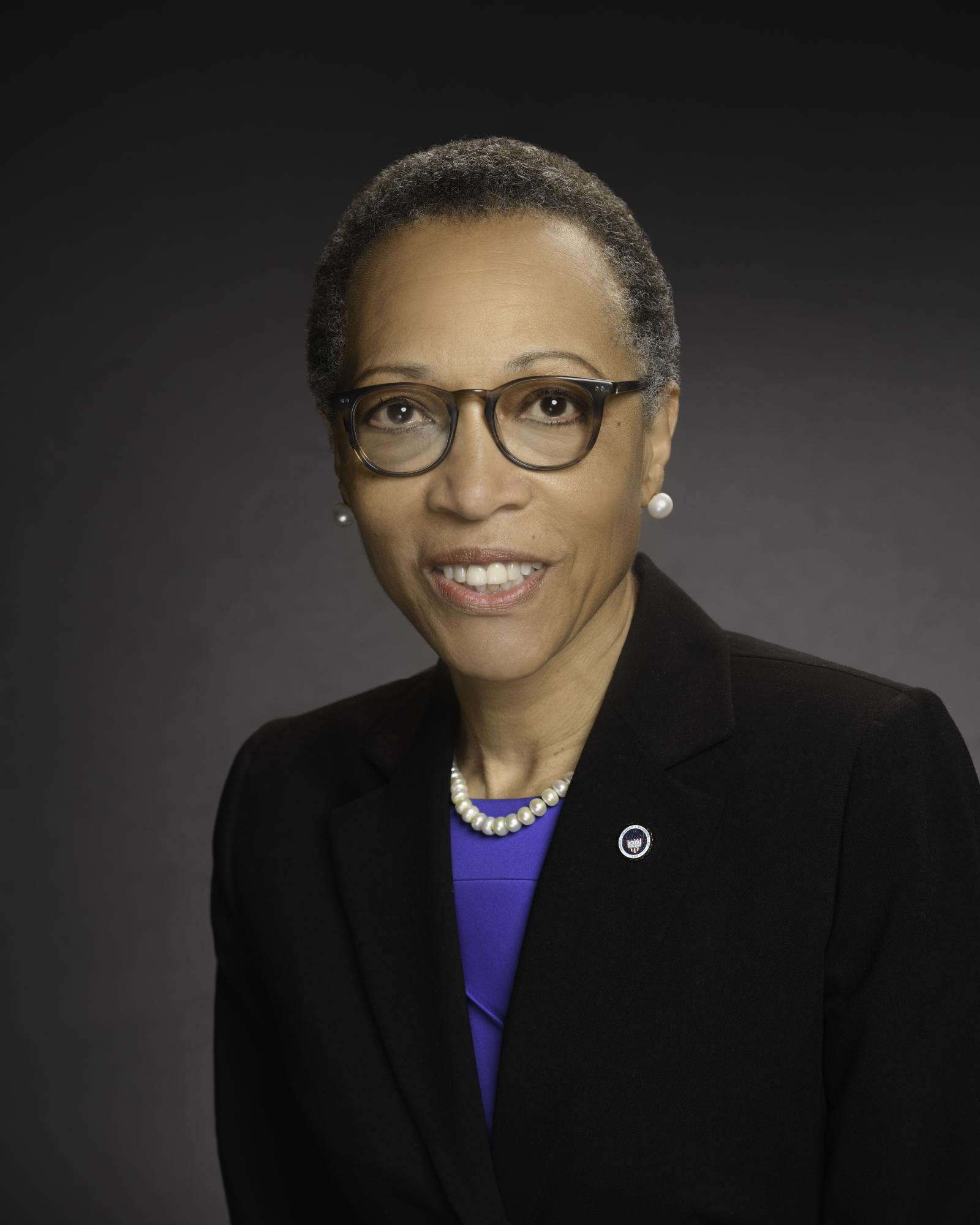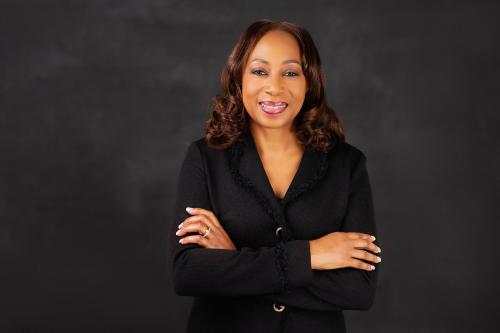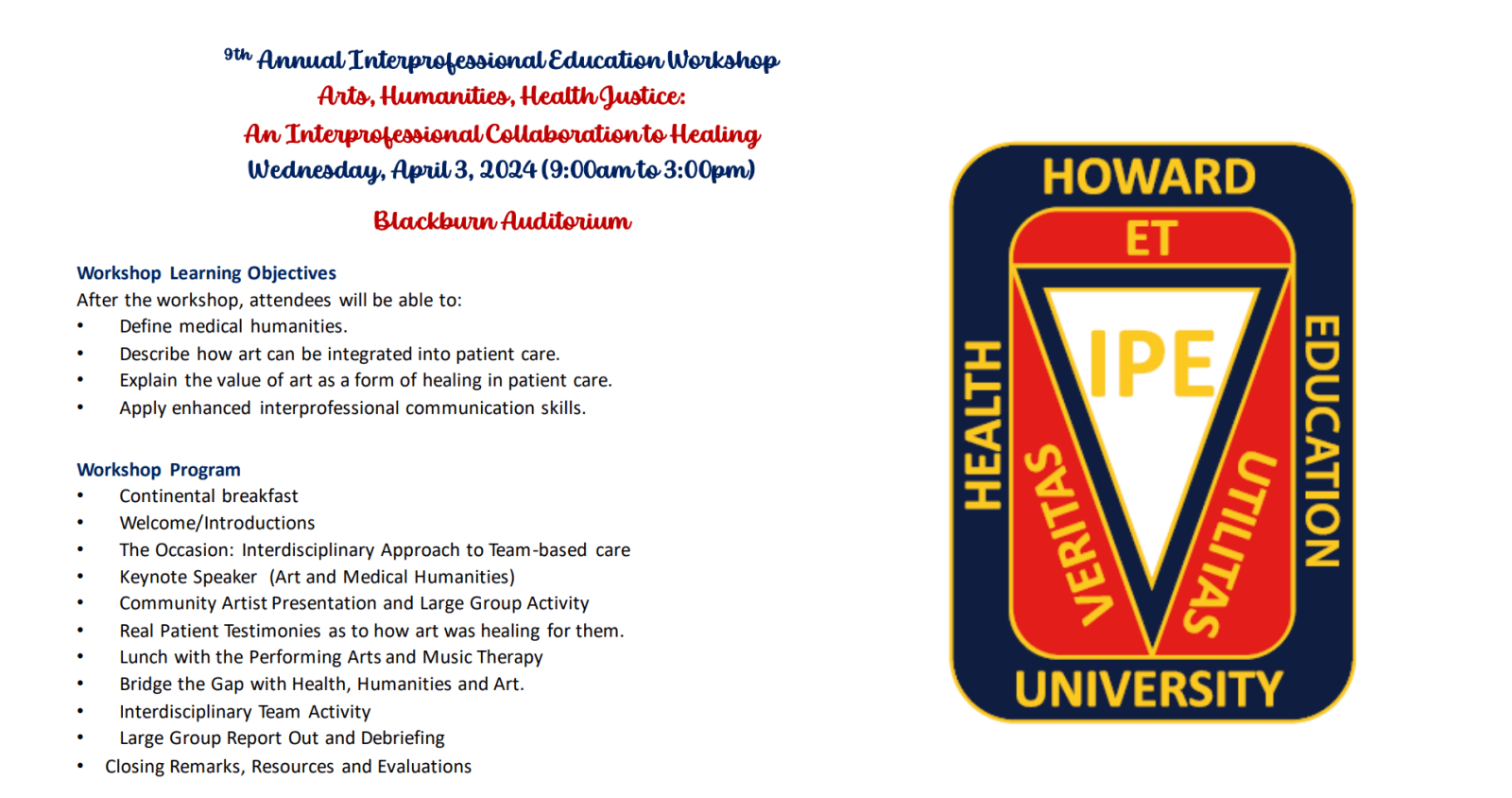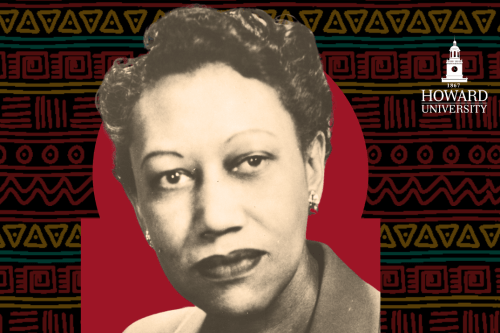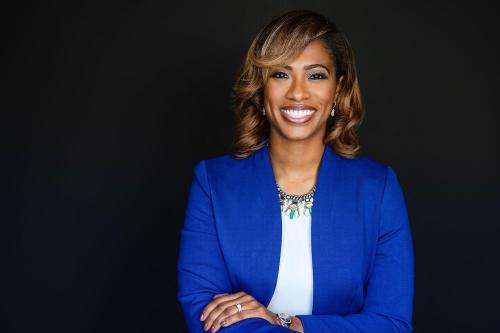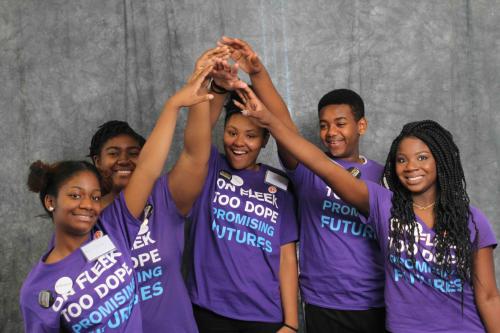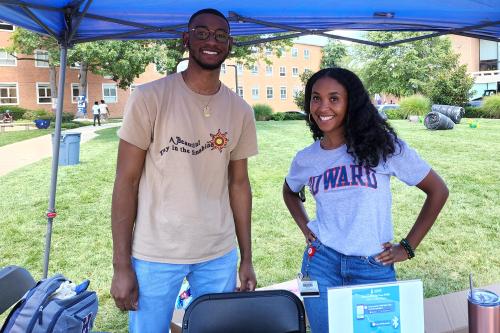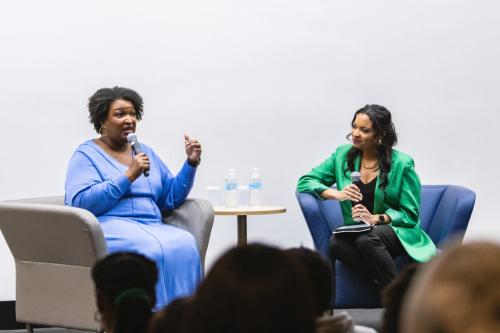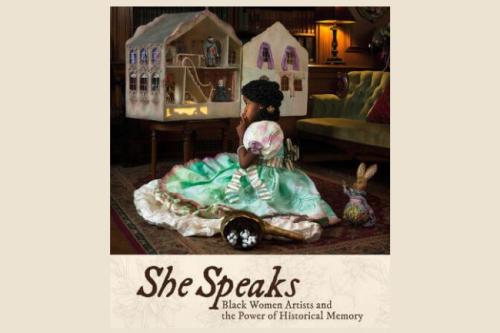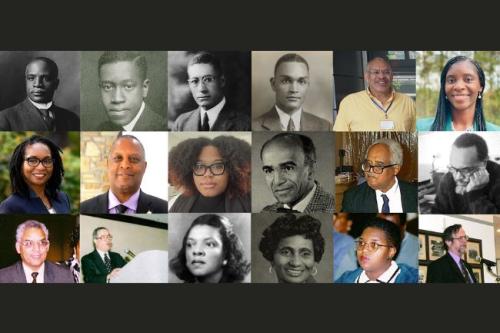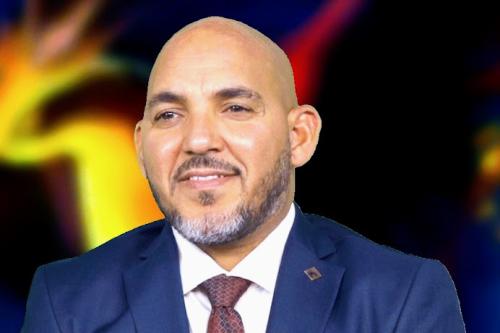How are the ethics of healthcare, social work, communications, and artists interconnected? According to Howard University’s Interprofessional Education (IPE) Committee, every way possible.
Ahead of their ninth health workshop, and in celebration of Women’s History Month, the 13 all-women members of the Interprofessional Education Committee are shedding light on their goals as an organization with a mission of preparing the next generation of providers across disciplines.
“Every time I come to this platform, I am energized, I am inspired,” said Donna Grant-Mills, Ph.D., a founding member of the IPE Committee. “When I don’t know which way to go, this committee shows me the way. It’s tremendous work – a lot of focus but a lot of love.”
We’re always thinking about how we can make sure that students benefit and can be exposed to other disciplines.”
The Education and Ethics of Tomorrow’s Black Professionals
In what she calls “interdisciplinary engagement,” Grant-Mills said the IPE Committee’s shared identity creates “outcomes of care” that connect, share, and identify providers in different professions.
The IPE’s University-wide mission is to build “culturally-responsive, collaborative, and practice-ready professionals across the spectrum of health and behavioral science disciplines.” The Office of the Provost established the Interprofessional Education (IPE) Committee in 2015.
Tamara Owens, Ph.D., serves as the IPE Committee Chair. Owens is an expert in medical, interprofessional development herself as the founding director of The Howard University Simulation and Clinical Skills Center.
Housed under the Office of the Provost too, faculty, students and researchers can test a plethora of medical practices on simulated mock patients in clinical scenarios. The simulation serves 10 of the University’s 14 schools and colleges. For Owens, the center is a complementary entity to the interprofessional committee as patient care becomes a “team sport and effort” there.
“The space itself is designed for us to engage as teams, it’s designed for us to think about whenever we have a new faculty member, integrating them into what’s going on with another discipline,” Owens explains. “We’re always thinking about how we can make sure that students benefit and can be exposed to other disciplines.”
The need for implementing interprofessionally manifests in different ways throughout colleges and schools. For social work, there is a need for a multidimensional approach to assess a family or child’s wellbeing through cultural and social lens.
Janice Davis, Ph.D., spoke to the interprofessional committee as an opportunity to increase the School of Social Work student’s awareness to conduct a full, equitable assessment of a child’s wellbeing.
“We’re trying to teach students to function in that mindset, because that will save the Black community,” said Davis, the School of Social Work’s director of clinical education.
“We are all aware of the limitations of being a Black professional in different arenas, and we know that there are not enough of us to go around to actually be involved.”
As lockdown erased traditional lines of communication and roles, the COVID crisis highlighted the need for alternative ways to embrace a multi-role atmosphere.
IPE Committee member Pamela Carter-Nolan said impromptu COVID practices raised the need for “synergy” within relatable professions, a core value to the interprofessional committee. Carter-Nolan is the director of graduate studies for the University’s Master of Public Health program.
“COVID [research] was originally clinical based with the medical, nursing, and pharmacy, but we had to realize to get the people, you needed the mental health community to come to the table and reach the individuals,” she said. “You needed the scientists to come to the table and explain the details in layman’s terms so people could understand what was going on. Public health, in my opinion, was that bridge.”
The Interprofessional Education Committee’s Annual Gathering
The annual IPE Committee interprofessional workshop themes are chosen in alignment to world and cultural events. By 2019, the committee hosted sessions around ‘Understanding the Intersection of HIV and the Opioid Epidemic’ when the CDC announced 70,980-opioid related deaths as HIV and STI are ubiquities in college campus health discussions. The 2021 workshop “Introduction to Mindfulness: Clinician Well Being and Resilience.”
“Before our eyes, thousands of people, our family members, were dying of an illness that we did not understand,” Owens said of the health professional environment during COVID-19. “However, all of us were expected to continue with our professional lives. The committee decided we needed to do something.”
The interdisciplinary workshops shed light on the toll that mass death and isolative work environments took on health professionals. and the unique blends between science and spiritual. The IPE Committee collaborated with the Andrew Rankin Memorial Chapel’s Wellness Collective and Rev. Bernard L. Richardson, Ph.D. Emelia Sam, Ph.D. served as keynote speaker as she delivered an address about the unique blend between science and spirituality. Students received a copy of Sam's book ‘Compassionate Competency: Healing the Heart of Healthcare’ from the IPE Committee.
“This committee does extremely well when keeping their hand on the pulse of what’s relevant in our community, and what’s relevant to our students and to our campus,” Owens said.
Art is Healing: The 2024 Interprofessional Workshop
The ninth Annual Interprofessional Education Workshop will take place Wednesday, April 3 from 9 a.m. to 3 p.m. Activities will include defining medical humanities, art as a spiritual medium and form of healing in patient care, and enhancing the IPE's overall mission. About 270 students are expected to attend the event.
Ellen Edwards (R.N. ’87) is a clinical nursing instructor for CNHAS and a founding member of the IPE Committee. From her experience as a nurse for more than 20 years, the workshop is a chance to finally recognize nursing “as an art and a science.”
“We have the art of caring, we have to be able to listen and appreciate what the patient is saying, the change of their colors, the way they feel when we touch them,” she explained. “Art is fluid, and each patient is a unique individual.”
While the IPE Committee gears up for the event, Sharon Lee Minor, Ph.D. served as a special guest in their planning meeting.
Minor, an award-winning community artist, owns her consultant agency, A Minor Enterprise, to teach communities about art and anthropology and its connection to the livelihood of the Black community. She has worked with Andrew Rankin Chapel in previous roles studying congregational dance through worship. She will serve as this year's opening speaker for the IPE workshop, discussing how the arts are a constant presence in the science fields.
"I see no difference between art and the medical community, artists are part of your medical community,” Minor said.
During the meeting, Minor emphasized the need to use art as vulnerability which helps patients feel safer, while highlighting the way dance has acted as a means of resistance, healing and empowerment.
“When you’re talking about healing, you’re talking about the artists within the individual,” Minor said.
The 2023 - 2024 Interprofessional Education Committee Members:
Tamara Owens, Chair, Ph.D., M.Ed., CHSE (Simulation & Clinical Skills Center)
Donna Grant-Mills, Co-Chair, DDS (College of Dentistry)
Felecia M. Bank, Co-Chair, Ph.D. (College of Nursing & Allied Health)
Kristin Robinson, Co-Chair, Pharm.D. (College of Pharmacy)
Janice Davis, Ph.D., MSW, LCSW-C (School of Social Work)
Janice Edwards, Ph.D. (School of Social Work)
Sonya Sobrian, Ph.D. (College of Medicine)
Valencia Cardora Perry, Ph.D. (School of Communication)
Pamela Carter-Nolan, Ph.D., MPH (School of Public Health)
Oluwakemi Adeola, Ph.D. (College of Nursing & Allied Health)
Ellen Spratley-Edwards, BSN (College of Nursing & Allied Health)
Cheryl Fryer, DDS (College of Dentistry)
Fatima Barnes, EDD, MBA, MPH (Louis Stokes Library)
